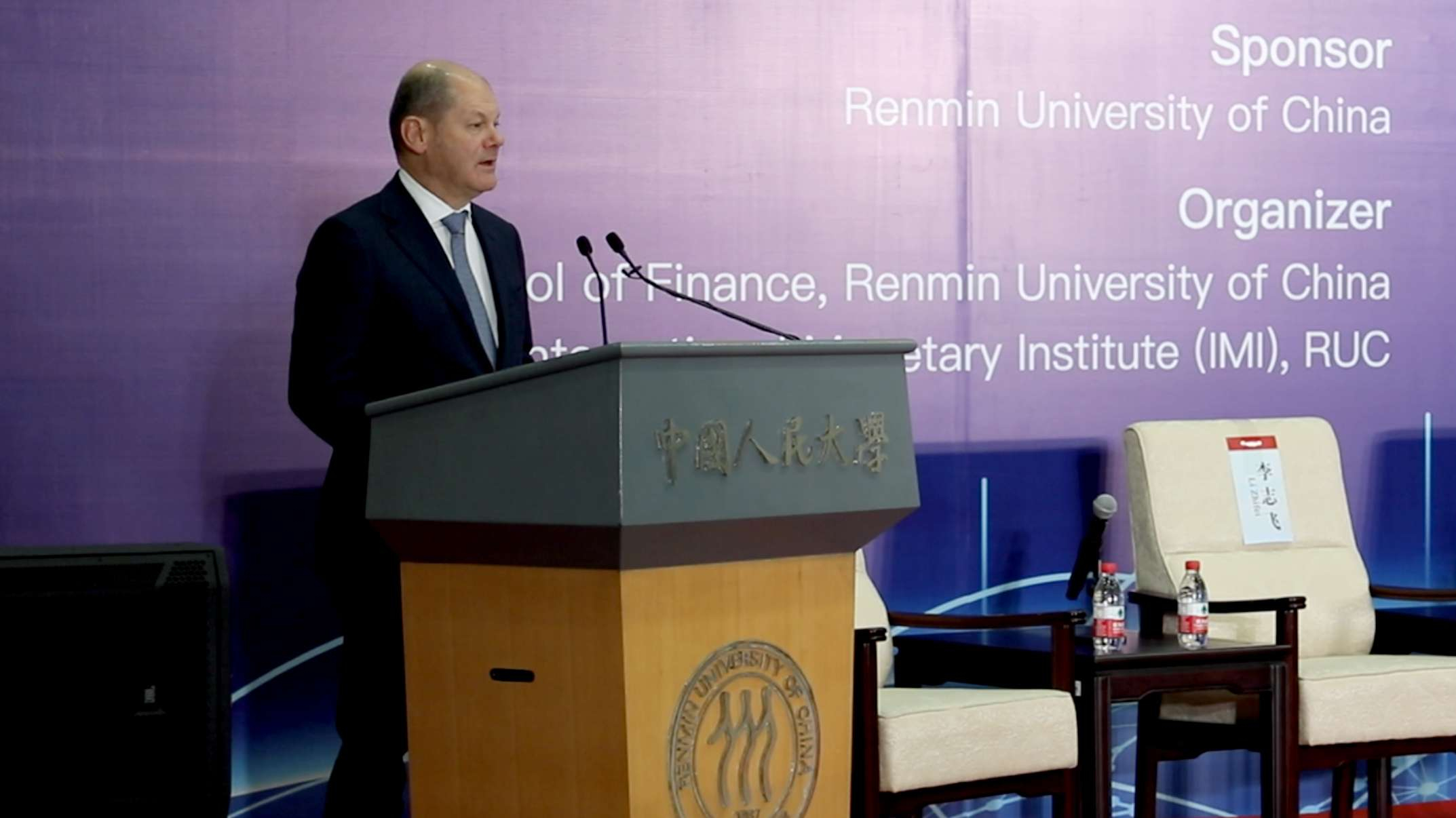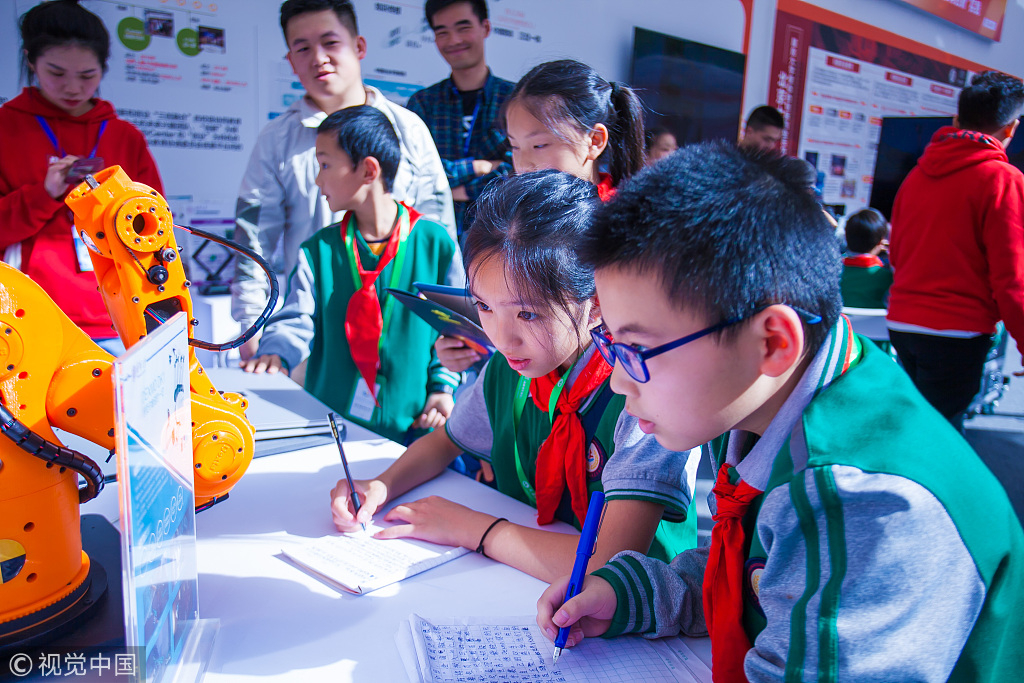
World
17:31, 19-Jan-2019
China, Germany must work together on digital challenges: Scholz
Updated
18:19, 20-Jan-2019
CGTN
01:21

Germany and China, already key trading partners, need to learn from each other and work together in growing the digital economy, even as it creates challenges for manufacturing, jobs and data privacy, German Vice-Chancellor and Finance Minister Olaf Scholz said Thursday ahead of meetings with Chinese officials in Beijing.
Germany presented in November an Artificial Intelligence Strategy with the goal of making itself and Europe a global leader in AI. As part of this effort, three billion euros are to be poured into the sector by 2025, with a similar amount expected to come from private investment, Scholz said.
Meanwhile, China unveiled its own Next Generation AI Development Plan in 2017.
The next step for the two countries will then be "tackling the challenges of the digital era as well as competing for leadership in shaping it," Scholz said, when speaking to students at Beijing-based Renmin University of China.
This will include adapting key sectors like manufacturing, energy and the automotive sector, and ensuring social welfare and inclusion are maintained, especially as Germany and China's populations grow older.

A huge threat to jobs? The Ubtech Alpha Mini robot is displayed at the Ubtech booth during CES 2019 in Las Vegas, Nevada, U.S., January 9, 2019,. VCG Photo
A huge threat to jobs? The Ubtech Alpha Mini robot is displayed at the Ubtech booth during CES 2019 in Las Vegas, Nevada, U.S., January 9, 2019,. VCG Photo
Education and training opportunities need to be made available to help people adjust to the new circumstances. The priority "is that anyone is sure that we are willing to help him to be able to succeed in a fast changing world," Scholz said.
There also needs to be a balance between allowing the greater sharing of data and protecting people's privacy. On that topic, Germany and the EU remain firm: legal frameworks are in place to protect citizens' data and they "will expect everyone who wishes to trade with Europe and its over 500 million citizens to respect this framework."
Speaking on the panel with Scholz were also tech entrepreneurs, who pointed to two basic issues that China and Europe will need to conquer if they want to surpass the dominant U.S. tech industry.

School children participate in a startup event in Chengdu, Sichuan Province, southwest China, October 9, 2018. VCG Photo
School children participate in a startup event in Chengdu, Sichuan Province, southwest China, October 9, 2018. VCG Photo
For Li Zhifei, a former Google developer, now founder and CEO of Mobvoi, an AI company specializing in voice recognition, a broader pool of talent is key. At present, U.S. tech companies have a "huge, huge advantage because they are able to attract talent from around the globe. China right now can only attract talent from China or those Chinese who studied overseas," he deplored.
Europe, meanwhile, needs to learn to "think big," noted Fabian von Heimburg, the German co-founder of Hotnest, a European-Chinese AI and big data platform. A frequent argument is that the massive U.S. and Chinese markets are conducive to big tech companies, like Google, Amazon or Alibaba, while the EU is too fragmented.
But this is just an excuse, and the size of the European market and the success of U.S. tech companies there are proof of the potential on the continent, according to von Heimburg.
(Top photo: German Vice Chancellor and Finance Minister Olaf Scholz speaks at China Renmin University in Beijing on Thursday. /CGTN Photo)

SITEMAP
Copyright © 2018 CGTN. Beijing ICP prepared NO.16065310-3
Copyright © 2018 CGTN. Beijing ICP prepared NO.16065310-3